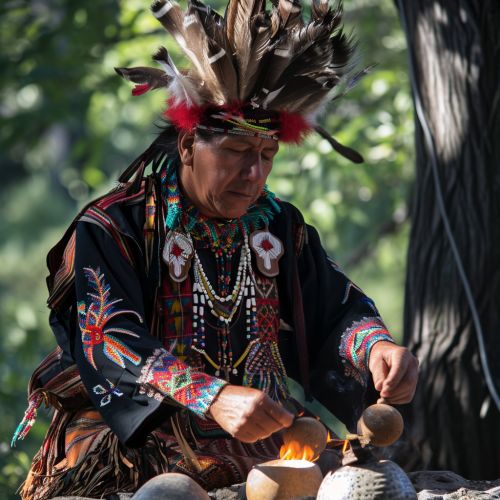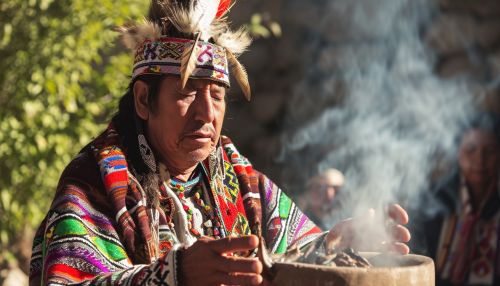Machi (Mapuche)
Introduction
The Mapuche people of South America have a rich cultural heritage, one aspect of which is their traditional spiritual and healing practices. Central to these practices is the role of the Machi, a spiritual leader and healer within the Mapuche community. The Machi is a figure of great importance, serving as a mediator between the physical and spiritual worlds, and playing a vital role in the health and well-being of their community.


Role and Responsibilities
The Machi is typically a woman, although men can also fulfill this role. They are chosen through a spiritual calling, often marked by a series of dreams or visions. Once chosen, the prospective Machi must undergo a rigorous training process under the guidance of an experienced Machi. This training involves learning about medicinal plants, spiritual rituals, and the interpretation of dreams and visions.
The Machi's responsibilities are numerous and varied. They lead religious ceremonies, provide spiritual guidance, and perform healing rituals. They are also responsible for interpreting dreams and visions, predicting the future, and communicating with the spiritual world. In addition, the Machi plays a crucial role in community events such as births, deaths, and marriages.
Selection and Training
The selection of a Machi is a spiritual process. It is believed that the spirits choose individuals who are receptive to their messages and have the potential to become a Machi. This is often revealed through dreams or visions, which are interpreted by an existing Machi.
Once an individual has been identified as a potential Machi, they undergo a period of training known as the 'machitun'. This is a rigorous process that involves learning about the spiritual world, medicinal plants, and Mapuche rituals. The trainee also learns how to interpret dreams and visions, and how to communicate with the spirits.
Rituals and Practices
The Machi performs a variety of rituals and practices, many of which are aimed at healing and maintaining the well-being of the community. These include the 'machitun', a healing ritual; the 'nguillatun', a communal prayer ceremony; and the 'antüentun', a solar observance ceremony.
During these ceremonies, the Machi enters a trance-like state to communicate with the spirits. They use a variety of tools and objects in their rituals, including the 'kultrun' (a ceremonial drum), the 'rekücha' (a ritual rattle), and the 'machiwe' (a sacred altar).
Social and Cultural Significance
The Machi holds a position of high respect within the Mapuche community. They are seen as a bridge between the physical and spiritual worlds, and their guidance is sought in all matters pertaining to health, spirituality, and community well-being.
Despite the influence of Western culture and religion, the role of the Machi remains significant in Mapuche society. Many Mapuche still rely on the Machi for spiritual guidance and healing, and their rituals and practices continue to be an integral part of Mapuche culture.
